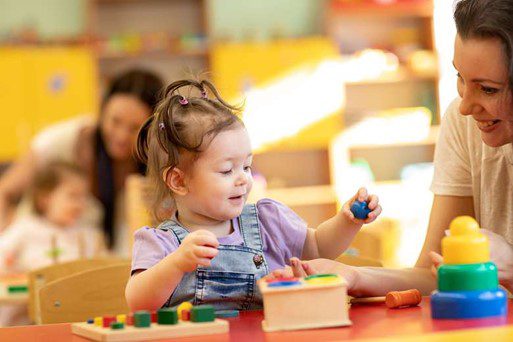GK Adviser Noureen Ahmed considers Labour’s approach to the early years sector and why it is so important for providers to engage with the government.
Earlier this month, the Prime Minister Keir Starmer outlined his ‘Plan for Change’ in which he set out the six metrics he would like to hit by the next election. This was an important moment for Starmer to demonstrate to voters that his government means business after a turbulent five months in office. Starmer’s education metric, to ensure 75 per cent of five-year-olds are school-ready, falls under the government’s mission to break down the barriers to opportunity. This is one of five missions Starmer set out prior to the election in which he promised to bolster opportunity for all through improvements to the education system.
Early years education has long been a priority for Labour, with Starmer’s education team having been incredibly vocal about the sector in opposition. Even though much of the initial focus has been on delivering the previous government’s early years reforms, notably the rollout of the extended childcare entitlement, the new government is clearly preparing the sector ahead of launching its own early years agenda, as laid out in Labour’s general election manifesto.
Whilst the spotlight on the sector has been welcomed, some immediate concerns have been expressed by sector leaders, including: whether the government’s schedule to roll out the final stage of its extended childcare entitlement to up to 30 hours go ahead as planned in September 2025, and if the government can deliver its additional pledges for the early years sector successfully over the course of this parliament.
The recruitment and retention crisis facing the early years sector is the biggest barrier impacting the delivery of the extended childcare entitlement. Difficulties attracting people to work in the early years sector, coupled with an exodus of staff, means it is unsurprising early years professionals are sceptical about whether the final rollout will go ahead as planned. The Department for Education’s (DfE’s) recent announcement that it will provide £75 million in grant funding to help childcare providers deliver the staff and places needed next year is positive and suggests that the government is determined to launch the final stage on time, despite these challenges.
There was also some welcome news at the October budget with the government announcing £15 million in investment to begin the delivery of 3,000 school-based nurseries by the end of this parliament. Schools currently have the opportunity to bid for up to £150,000 to either expand existing nurseries or open a new one, with the government hoping to open around 300 new or expanded nurseries by September 2025.
Education secretary Bridget Phillipson has reiterated government’s appetite to deliver more school-based nursery provision. Making use of unused classrooms in primary schools looks like a sensible policy approach. However, the government could find it difficult to meet the commitment’s short- and long-term targets. Getting enough schools on board with the scheme could prove difficult. Even though there may be capacity to utilise the free classroom spaces available, the infrastructure (both physical and logistical) needed to create and maintain nursery provision is very different to those needed for primary school pupils.
The Labour government is also realistic about the need for a model which includes both state-delivered provision via in-school nurseries and maintained nurseries and provision by the private voluntary and independent (PVI) sector in order to meet capacity demands. In regard to the latter, the government understands the importance of the PVI sector in delivering high-quality early years education and so will be keen to work with the sector to deliver much of its proposed in-school nursery provision.
Moreover, Ofsted has said it will work to support the government’s plans by making it easier for high-quality providers to set up and expand nurseries. The watchdog’s plan to streamline the registration process for providers as well review how it inspects and regulates multiple providers is laudable because it allows the sector the chance to continue meeting the demand for early years settings.
The government has made a big play that in total will see investment increase by over 30% compared to last year, all whilst happening amidst a bleak fiscal outlook. This political priority as the education secretary has acknowledged must be accompanied by reform to deliver a sustainable early education system. This will mean high quality providers demonstrating value for money and their ability to scale up provision. Those providers with a proven track record and an ambition for growth will find a receptive ear within DfE and No 10. With the next phase of rollout in 2025 and the comprehensive spending review in the spring setting out the funding for the remainder of this parliament, providers have no time to waste. They should prioritise engaging with government to position themselves as a partner in the next phase of reform, and to demonstrate the role they play in ensuring a successful delivery.



